The sun shone through floor to ceiling windows filling the room with light as Zhongyu Yin watched Duke Kunshan Chancellor Yaolin Liu give an impassioned convocation speech to incoming freshmen from around 70 countries on the basketball court of the university’s newly opened sports complex, on August 14 last year.
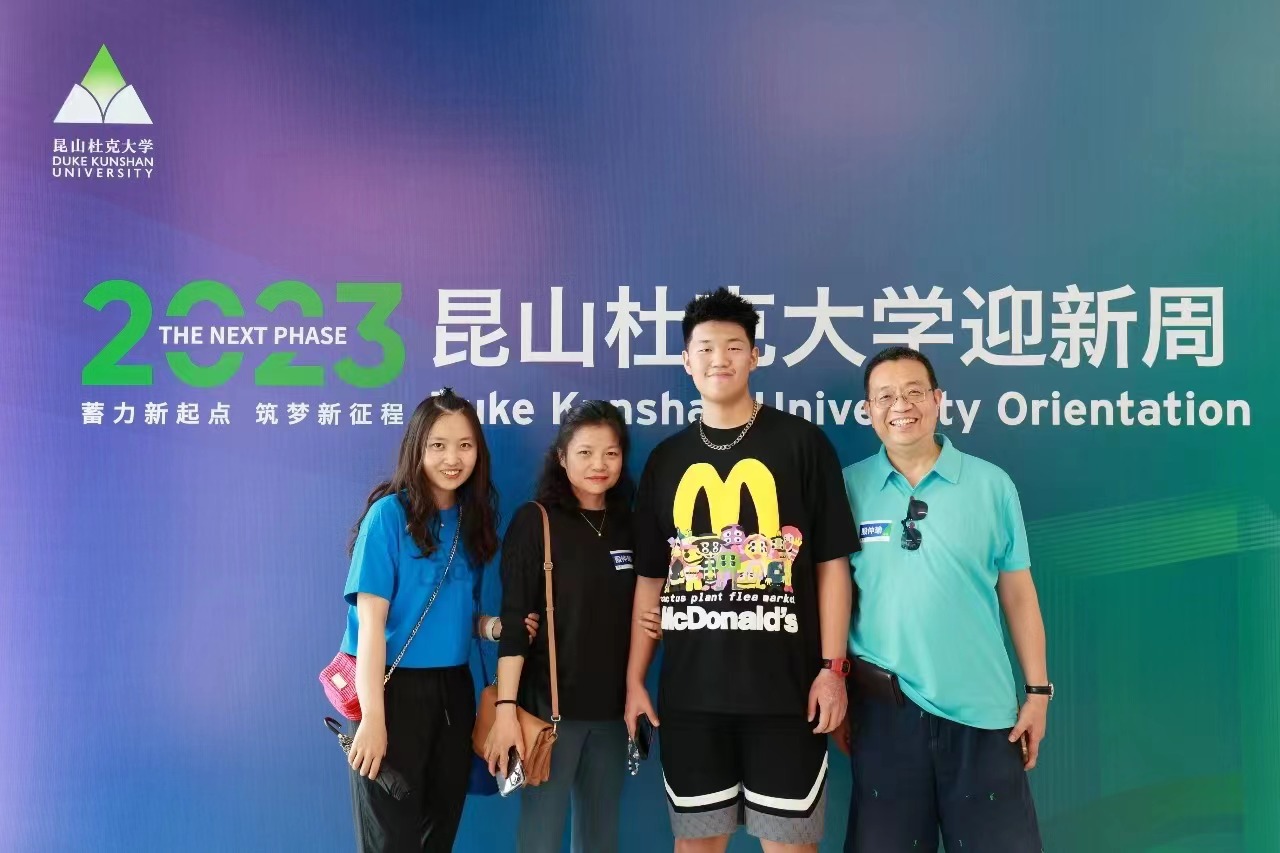
For Yin, everything seemed unreal – a huge departure from his first 18 years in Beijing. “My heart was trembling,” he says. Still, a basketball court was an appropriate place for him to begin a new phase of life. After all, it was basketball that helped him overcome a childhood disorder, allowed him to attend a top high school and, in an ironic twist, played a major role in him choosing to study at DKU instead of a more sports-oriented university.
Now, months into his first year at Duke Kunshan, Yin says he has no regrets in his decision, and has become more confident and self-reliant as a result of it.
“I used to follow the instructions of teachers and coaches. Now I have a lot of time of my own, but there are more things I want to do, such as academic work, clubs, hobbies, and finding professional directions, all of which need to be planned by myself,” he says.
It has also changed his outlook on the game that provided both structure and stress during his childhood.
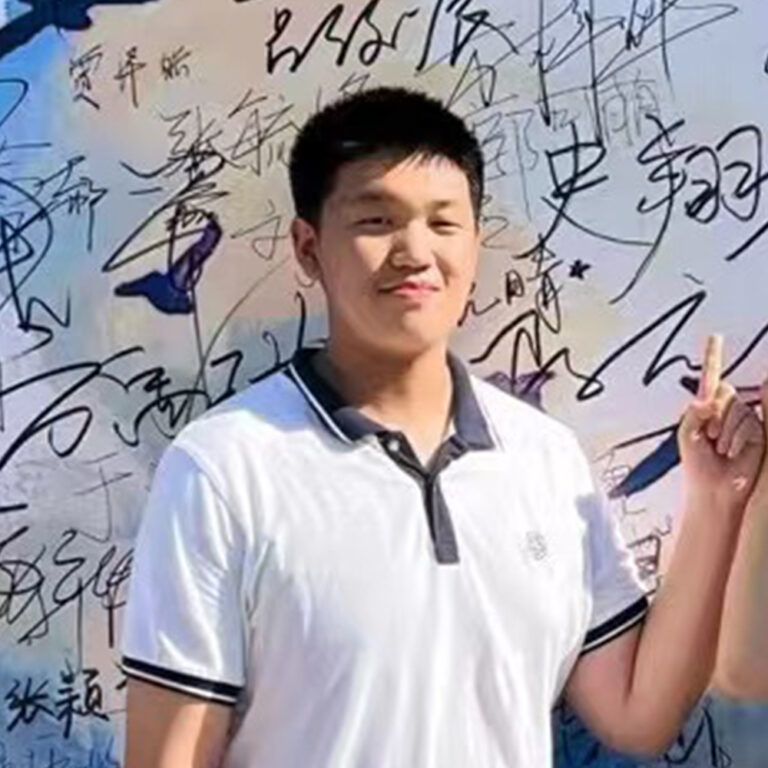
Yin started playing basketball at the age of six, following a diagnosis of a severe sensory integration disorder. “My eyes, hands and brain did not coordinate well,” he says.
The doctor advised his parents to take him for corrective training, which initially consisted of exercises on an obstacle course, jumping mat and balance boards. He struggled in his first few years with basketball, as he had difficulty dribbling the ball and moved slower than other players.
As he watched his teammates move effortlessly while he stumbled, Yin says he became a little “unhappy about being inferior to others,” but never gave up.
The corrective training lasted for seven years, and by third grade he had caught up with his peers and began to enjoy playing basketball.
By sixth grade, as his family started to think about which junior high would be the best for him, Yin stood 5-feet 9-inches (1.8 meters) tall. At the time, the policy in Beijing was to assign students to schools near their home, but due to his height Yin was able to circumnavigate this rule and attend Beijing No.4 High School, where he joined a top basketball program that had won several league championships.
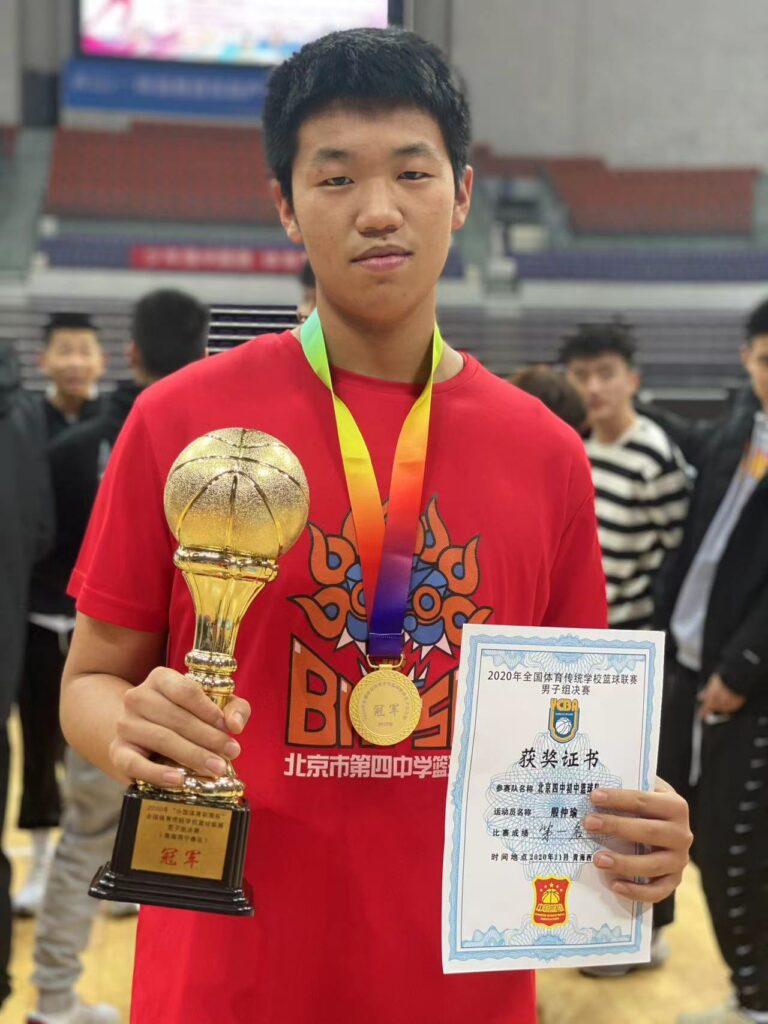
During basketball practice, Yin never needed to be pushed to give maximum effort, but when it came to his studies, he was so lax that his teachers and mother grew anxious. After receiving a low grade in English, Yin’s teacher asked him if he intended to drop out of the high school entrance examination. This spurred Yin to change his mindset and, with the encouragement of teammates, he quickly raised his grades.
In China, high-level sports team recruitment can help qualified students get into the top colleges and Yin had always considered this as his route to higher education. But, during his senior year of high school, he discovered that the majors included in the sports team recruitment programs had been greatly reduced. He was also looking for a similar educational experience to the summer of his first year of high school, when he participated in a camp at the University of Pennsylvania. There, he encountered a different model of learning. “You could have your voice amplified. It was no longer just one-way input. There were many group discussions, and you could put what you had learned to the test,” he says.
During his college search, Yin read about a similar educational philosophy at DKU, and attended an online introduction session with his parents. He was pleasantly surprised to learn of the school’s stellar first-year graduation data and low student-teacher ratio.
His parents, both graduates of Ivy League law schools, preferred DKU’s diverse education model, and advised Yin to, “stop playing basketball and apply to the school.” He dedicated himself to his studies and was accepted for reasons unrelated to basketball.
“I think playing basketball and studying share one thing in common – hard work pays off. The path ahead is not always smooth and straight, it may be a winding staircase, but as long as I don’t give up, I believe I can do it,” he says.
Once at DKU, Yin was dazzled by the diverse campus life with more than 60 student clubs and organizations, and dozens of elective courses from which to choose, as well as classmates from 67 countries across five continents, a wide range of research centers and practical activities, and functional spaces including study rooms, libraries, labs, gyms, and community activity centers to explore.
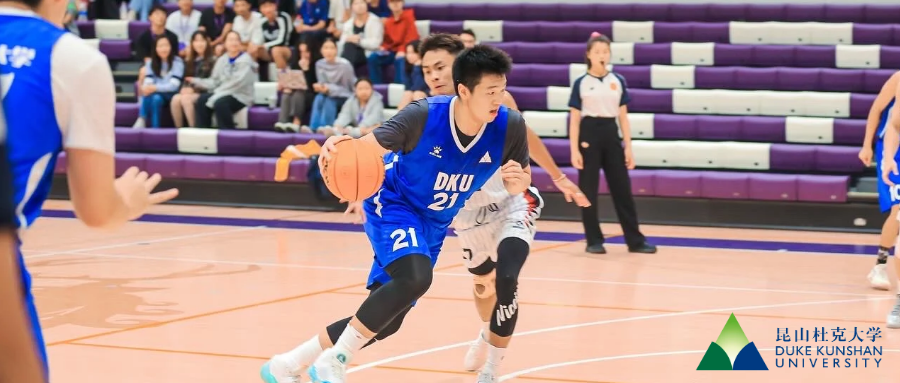
In his first months at DKU, Yin says his world view has been expanded, with new friends from the United States and Pakistan helping him to shatter stereotypes he learned from the Internet and realize the importance of treating everyone as individuals. The relaxed atmosphere and openness of debates has also convinced Yin that he made the right choice in coming to DKU.
There have, of course, been stressful times, many of them due to the switch to an all-English learning environment, which Yin found difficult. To overcome it, he chatted to English-speaking friends every day, previewed classes, and has tried to expand his vocabulary through English literature.
Outside of study, Yin’s favorite activity remains basketball and he is now a member of the school team, where playing is quite different to his past experiences, he says.
“It’s less stressful than before and happier,” he says. “Playing basketball was more or less utilitarian, and the purpose of training was to get into college. But now we play to seek happiness, to add glory to the school, and to win. Without distractions, we love basketball from the bottom of our hearts.”
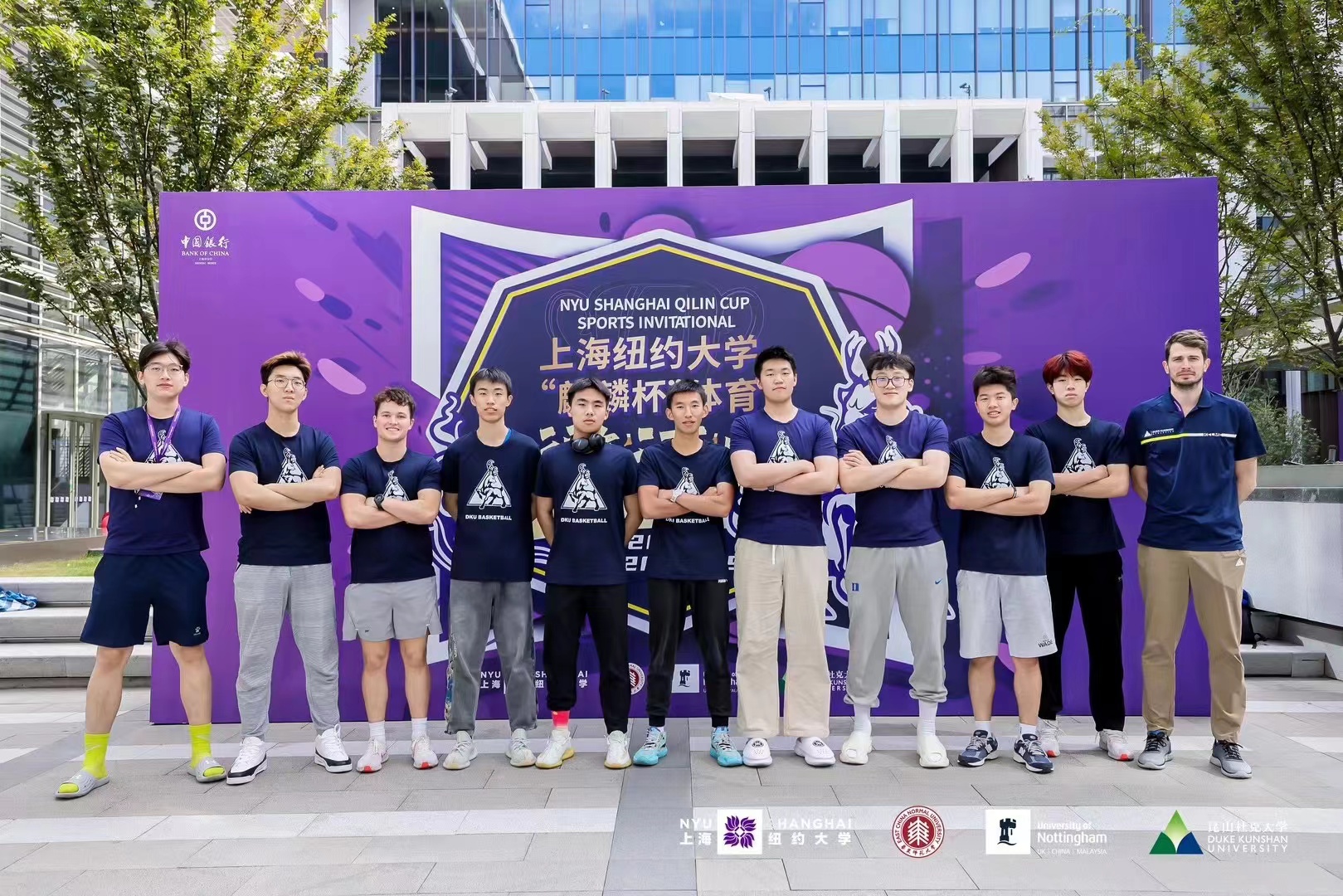
While Yin has until the end of his sophomore year to choose an academic major, he is already thinking of a way to combine his love of sports with data science. Eventually, he would like to help contribute to the digital development of the sports industry.
“Sports involves massive amounts of data, so data analysis can play a big role in the sector. It can be used to analyze an opponent’s experience and skills, or to prevent injuries, among other things,” he says.
In addition to a data analysis class, he is also taking a machine learning course, which, with no background in programming, he finds challenging.
“It’s tiring, but meaningful, because I am learning a lot. I want to contribute to society, get involved in the industry I love and the world we live in, and do something within my abilities,” he says.
“I have not become a professional basketball player, but perhaps what I learn and do now will help the sport flourish. I believe in the great power of passion and persistence.”

